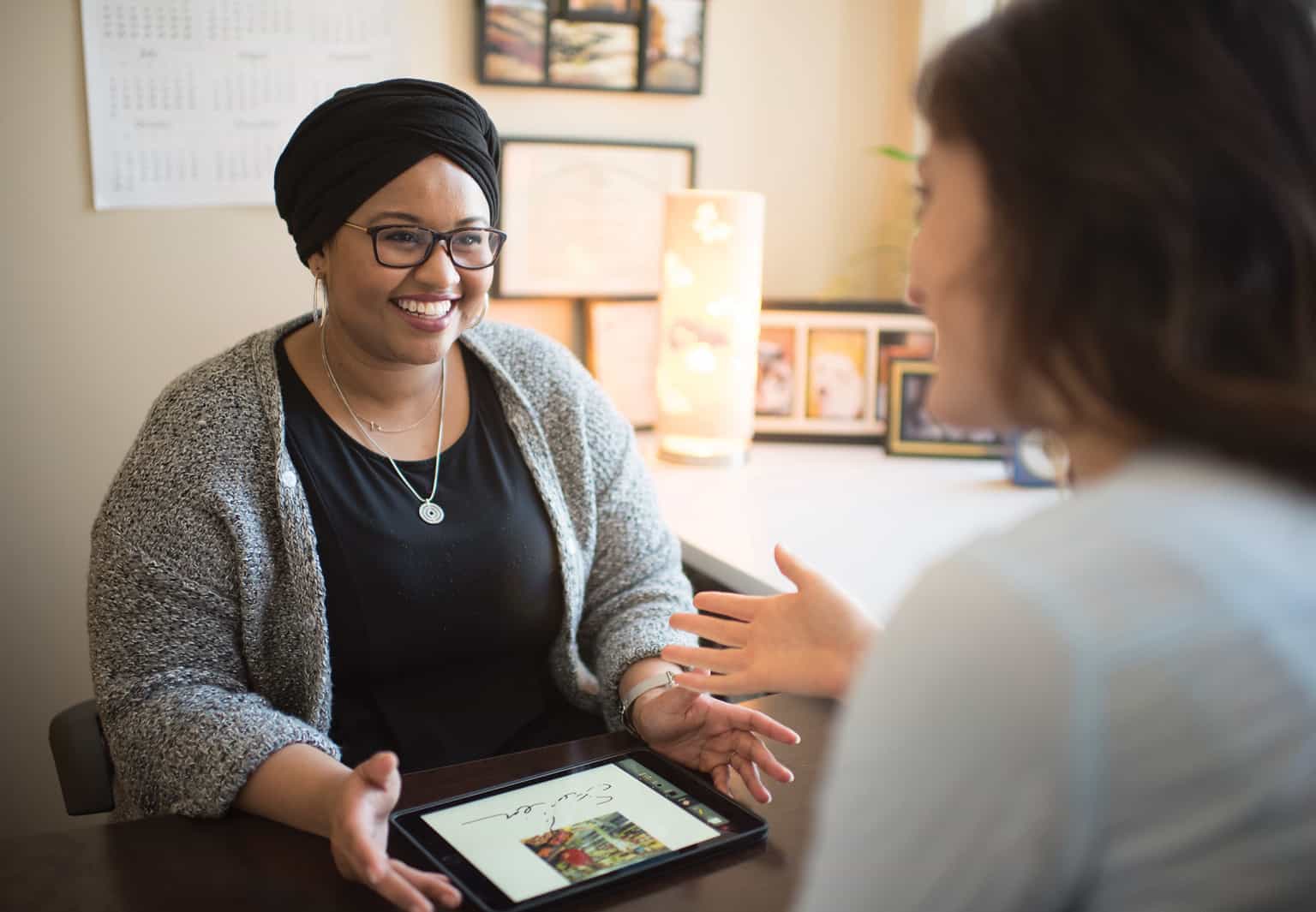
Speech-Language Pathology
The Speech-Language Pathology Department provides diagnostic, consultative, treatment and educational services to inpatient and outpatient infant, child, and adult cross-cultural populations. Speech-language pathologists hold a masters or doctorate degree, are certified by the American Speech-Language-Hearing Association, and are licensed by the Minnesota Department of Health.
Location
Services
An individual adult or child may be referred for a speech-language pathology consultation or evaluation for any of the following reasons:
Brain Injury
As a result of a brain injury, a person may have a variety of thinking problems. Research has shown that even a short loss of consciousness can lead to thinking problems. Some symptoms may include difficulty concentrating, disorientation to time/place, forgetfulness, impulsive behavior, poor organization and reasoning, slow processing, inflexibility and/or denial.
Stroke
Stroke occurs from blockage or rupturing of a blood vessel within the brain. The most common risk factors include high blood pressure, diabetes, obesity, and smoking. Strokes may cause a number of physical and speech issues, including weakness in the right or left arm and leg, difficulty speaking, writing, reading and listening, reduced control over muscles in the face and mouth, visual perception problems, forgetfulness, organization problems, difficulty with abstract reasoning and/or difficulty swallowing.
Dysphagia
Difficulty swallowing, or dysphagia, can occur as a result of a variety of medical conditions. Swallowing disorders occur in all age groups from newborns to the elderly. Normal swallowing involves a complex sequence of movements requiring precise muscle control. Swallowing disorders may be present in a variety of diseases especially any diseases or injury that directly affects the oral mechanism, or damage to the brain.
Head / Neck Cancer
Mouth and laryngeal cancer can include the following symptoms: hoarse voice, burning sensation when swallowing hot or acidic foods, earaches, coughing up blood, the appearance of a non-healing sore in the mouth or a lump in the neck. The most common cause of this type of cancer is chewing or smoking tobacco. An ear, nose & throat (ENT) physician evaluates the possible presence of a tumor through x-rays, viewing of the larynx, lymph gland inspection, and biopsy. Treatment may involve surgical removal of the tumor, radiation, and occasionally chemotherapy. Speech pathologists work closely with ENT soon after a diagnosis is made to make recommendations regarding ways to make speech clearer and swallowing easier.
Voice Disorders
Voice disorders are caused by talking too loudly, talking excessively, or using a pitch level which is too high or too low. Individuals can sustain an injury which causes trauma to the larynx (voice box), or paralysis of a vocal fold. Excessive or chronic smoking can be damaging to the voice as well. Other causes of voice problems include head injury, stroke or neuromuscular disorders. Many voice problems improve dramatically with the help of a speech-language pathologist. Some problems can benefit from a combination of medical or surgical intervention and speech-language pathology treatment. With some conditions, such as cancer of the larynx, an ENT provider may recommend surgery and pre/post-surgical counseling with a speech-language pathologist.
Developmental Speech-Language Services
Developmental speech issues in children have to do with delayed speech. Children who have speech issues follow a typical pattern of development, but at a slower rate and may be unable to use their language to communicate effectively. Delayed speech or language may be associated with hearing problems, developmental delay, cerebral palsy, autism and/or prematurity.
Bilingual Services
Bilingual services are available to Spanish speaking children and adults in their native language by a clinician who speaks Spanish. For other languages, services are provided to children and adults in their native languages through the use of interpreters.
Augmentative and Alternative Communication
Augmentative and alternative communication is a clinical practice that attempts to help individuals who have severe expressive communication disorders. Our speech pathologists utilize a group of components including symbols, aids, strategies, and techniques to help enhance communication, develop independence, increase productivity, and establish a more active voice in decision-making.
For appointments or more information call 612-873-8550.

